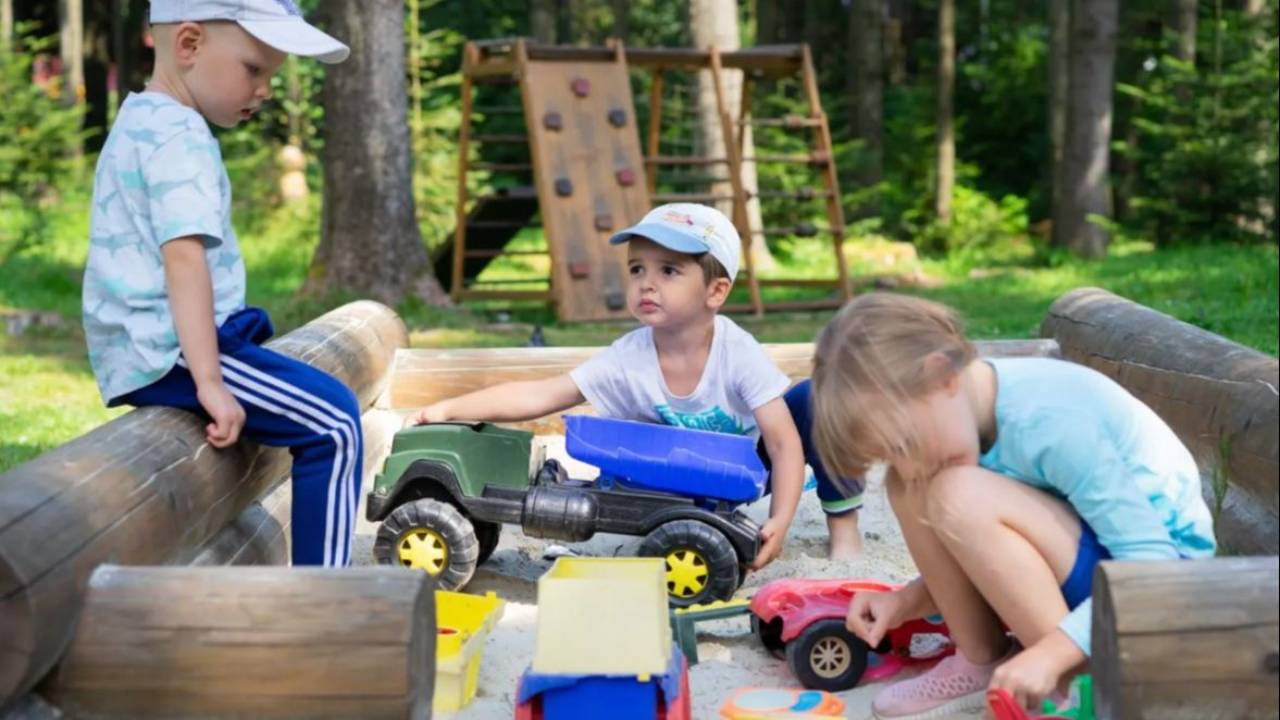When Big Feelings Meet the Playground: Emotions in a Social World
May 18, 2025
You may think you are beginning to understand your child’s emotions and outbursts. You may even be helping them to recognise and manage them for themselves. But you enter a whole new playing field when others get involved, and you need to start considering the emotions and behaviours of others.
Just when you think you’re getting a handle on it — the big feelings, the tricky moments, the outbursts that come from nowhere — your child surprises you. Maybe they’re finally starting to name their emotions, use their words, or come to you when it all feels too much.
And then… you step into a group setting.
Other children. Other behaviours.
Other emotions. Other expectations.
Suddenly, it’s not just your child’s emotional world you're navigating — it’s everyone’s.
A new playing field
Helping a child recognise and manage their own emotions is already a huge task. It takes time, patience, and a lot of repetition. But the moment your child enters a social environment — a nursery, a playgroup, a party, or even just a family gathering — the rules shift.
Now your child isn’t just figuring out how they feel.
They’re being asked to consider how others feel, too.
That’s a huge leap.
Emotions don’t exist in isolation
Social settings are emotional minefields for young children — not because anything is wrong, but because everything is new.
They’re learning:
- How to share space, toys, and attention
- How to handle rejection or disappointment
- How to respond when someone else is upset, angry, or unkind
- How to manage their impulses when others don’t behave the way they expect
They are trying, desperately, to stay regulated — while being surrounded by other little people who are also still learning how to regulate themselves.
It’s no wonder it’s hard.
So what can you do?
You can’t control how every other child behaves.
You can’t shield your child from every emotional challenge.
But you can prepare them. Support them. And help them make sense of what they experience in the social world.
Here’s how:
- Talk about feelings – theirs and others’
Use real-life moments to explore emotions:
- “She looks sad. What do you think happened?”
- “That was frustrating, wasn’t it? What could we do next time?”
This helps your child begin to see emotions as part of human interaction — not just something that happens to them.
- Model empathy and regulation
Your child learns more from what you do than what you say. When you show calm, understanding, and emotional honesty, they see what it looks like to move through tricky moments with grace.
- Normalise social struggles
It’s okay to say, “That was hard today.”
Children need to know that social learning is a process — not something they’re just supposed to get instantly.
- Support boundaries and problem-solving
Help your child understand that it's okay to say “no,” to walk away, or to ask for help. Emotional intelligence isn't just about being nice — it's about being safe, clear, and kind to yourself and others.
Helping them understand the bigger picture
As your child begins to grasp the emotions of others, they’re also forming ideas about fairness, friendship, belonging, and identity. These are huge, developing concepts — ones that take years to settle.
So, if it all feels messy sometimes, that’s because it is.
Emotional development in a social world isn’t linear.
There will be progress and setbacks, tears and triumphs.
But when you stay steady beside them — helping them name what they feel, reflect on what happened, and try again tomorrow — you are giving them tools they’ll use for life.
In the end…
Helping your child manage emotions in a social world isn’t about teaching them to be perfect.
It’s about helping them to be present, aware, and kind — to themselves and others.
And in a world that doesn’t always model emotional intelligence well, that’s one of the most powerful gifts you can give.
Dr Kathryn Peckham is an Early Childhood Consultant, author and researcher and the founder of Nurturing Childhoods and the Nurturing Childhoods Academy. Providing all the knowledge, understanding and support you need to nurture the children in your life.
Learn more about nurturing your learning child in the talks, newsletters and materials available in the Nurturing Childhoods Community
Stay connected with news and updates!
Join our mailing list to receive the latest news and updates from our team.
Don't worry, your information will not be shared.
We hate SPAM. We will never sell your information, for any reason.





